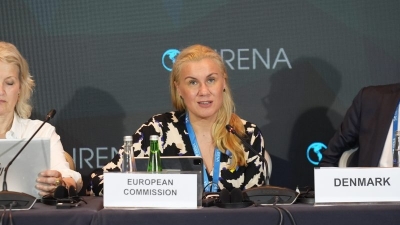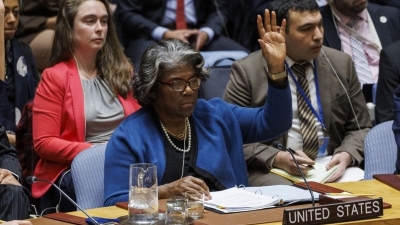EU calls for more science-based measures to curb harmful fishing devices

The EU justified its decision to step out of a landmark agreement to curb harmful fishing devices in the Indian Ocean citing a lack of scientific assessment, but the explanation was deemed hypocritical by ocean conservation groups.
In February 2023, the Indian Ocean Tuna Commission (IOTC) – the intergovernmental organisation managing tuna species in the Indian Ocean, which includes the European Union as one of its members – reached a landmark agreement to restrict the use and increase the transparency of drifting fish aggregating devices (dFADs).
These devices consist of a floating surface in the ocean that attracts pelagic fish – especially tuna species, such as overfished yellowfin and bigeye tuna – and are associated with negative impacts on tuna populations like the catch of small ‘juvenile’ tunas and by-catch of vulnerable species.
However, a group of IOTC member states – Comoros, Oman, Kenya, Seychelles, and the Philippines – soon decided to object to the resolution, meaning they will now be exempted from complying with the new dFADs rules expected to enter into force in August this year.
The EU was the last to join the group of ‘objectors’ who announced they were withdrawing from this resolution, a decision that could put the whole agreement at risk since it would automatically become null and void for all IOTC members if eleven of them object in the end.
A Commission official confirmed to EURACTIV that although the EU will not comply with the resolution entering into force in August 2023 after the objection, it has also proposed a compromise in four proposals which will be discussed during the next IOTC session from 8 to 12 May.
“In its proposals, the EU tasks the Scientific Committee with exploring the effectiveness of different mitigation measures, including a potential definition of sustainable level of dFAD deployed,” the Commission official explained.
For the EU executive, the IOTC shall consider the Scientific Committee’s conclusions and act accordingly but only at its 2024 annual meeting.
“With this way forward the IOTC will follow a science-based approach in its decision-making,” the official told EURACTIV.
For the moment, the EU operators will not be bound by the latest IOTC resolution but the previous one that dates back to 2019.
According to the Commission official, since the adoption of the 2019 resolution, the European vessels have complied with the limit agreed upon in the context of the IOTC – which means 300 FADs deployed at any one time.
72-day annual ban
Specifically, the Commission objects to the 72-day annual ban on the use of dFADs “without any scientific assessment” and a “cumbersome” real-time tracking system that could lead to the disclosure of commercially sensitive information.
“The resolution introduces provisions that are either practically not implementable or that […] would result in a disproportionate burden on the purse seine fleets operating in the area,” the Commission’s Director General for Maritime Affairs and Fisheries, Charlina Vitcheva, wrote in a letter.
The Commission also opposes the plan to gradually reduce the number of dFADs from 300 to 200 by 2026 and has proposed limiting the number to 240 by 2028.
Anne-France Mattlet, director of Europêche Tuna Group, which represents the fishing sector in the EU, aligned with the executive’s position, regretting the “adoption of an unfair and unworkable resolution for the European tuna purse seine fleet”.
“We hope that the submission of an objection together with a new proposal for a resolution by the European Union will allow negotiations to begin on a good basis and allow the sustainable and equitable management of the resource,” she added.
But ocean conservation groups and NGOs have sounded the alarm over the EU’s resistance to curbing unsustainable fishing practices.
“The proposal from the Commission is very hypocritical because they removed the most important parts of the resolution, which was the 72-day ban and the transparency requirements,” said Frédéric Le Manach, scientific director at ocean protection association Bloom.
“We have no requirements regarding transparency on dFADs,” he said, “we don’t know how many are out there, who operates them and where they are.”
According to Bloom, French and Spanish-owned purse seiners made 87% of their catch using drifting FADs in 2020 and 2021, mostly catching juvenile fish – which lowers their capacity to rebuild the fish population.
“In the Indian Ocean, the French and Spanish fleets account for a third of the catch,” including catches from vessels registered under other national flags – such as Mauritius, Oman or Tanzania – but owned by the two EU countries, explained Le Manach.
The upcoming IOTC session, to be held in Mauritius, will be “quite heated” according to the marine scientist, due to the increased polarisation of the issue.
On the one hand, coastal countries who support or have not objected to the resolution, such as Indonesia, and on the other hand, countries that have “very tight links” with the European Union – such as Kenya or Seychelles.



